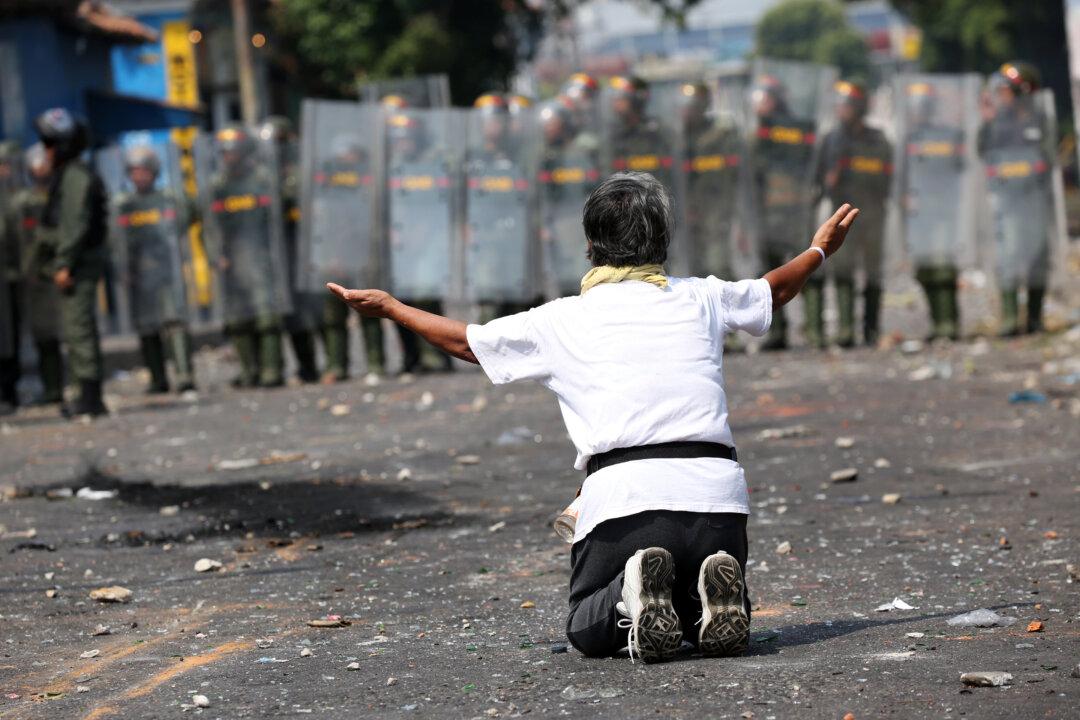Venezuelan troops loyal to ousted socialist dictator Nicolás Maduro fired tear gas and rubber pellets at supporters of interim President Juan Guaidó as they tried to bring foreign aid over the Colombian border on Feb. 23.
The clashes occurred as Guaidó, who most Western nations recognize as Venezuela’s legitimate leader, gave a personal send off to an aid caravan from the Colombian city of Cúcuta and Maduro’s socialist regime defied international pressure to step down.





